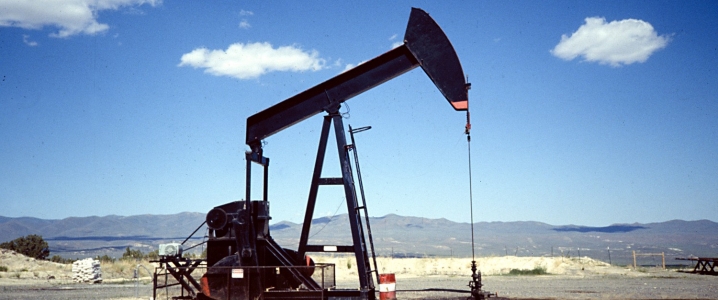www.aljazeerah.info
Opinion Editorials, June 2018
Archives
Mission & Name
Conflict Terminology
Editorials
Gaza Holocaust
Gulf War
Isdood
Islam
News
News Photos
Opinion Editorials
US Foreign Policy (Dr. El-Najjar's Articles)
www.aljazeerah.info
OPEC and Russia: A Strategy For a Long-Term Control Over the Oil Market By Tsvetana Paraskova and Vanand Meliksatian Oil Price, Al-Jazeerah, CCUN, June 4, 2018 |
|
 |
|
OPEC and Russia Prepare for Long-Term Control Over Oil Market
By Tsvetana Paraskova
In a tight oil market reacting with price gains to concerns about supply shortages, the leaders of the OPEC and non-OPEC nations part of the production cut deal—Saudi Arabia and Russia—hinted last week that easing the cuts was an option that they had discussed and that would be up for talks at the OPEC and allies’ meeting in less than a month.
Oil prices plunged from three-and-a-half-year highs on reports that the Saudis and Russia may add as much as 1 million bpd of supply to offset crumbling Venezuelan production and possible loss of Iranian oil exports with the return of the U.S. sanctions.
Many analysts don’t think the group would add the reported 1 million bpd of supply, but the oil market lapped up the news and concerns about a return to oversupply have dominated the OPEC chatter news flow for nearly a week. As the June 22 meeting is drawing closer, oil prices will likely react to any new hint, comment, or report about OPEC’s efforts to “address consumer anxiety over security of oil supplies.”
The latest of those reports says that OPEC and non-OPEC are set to stick to the production cuts through the end of 2018, but will be ready to “adjust” supply to address possible shortages.
The group of producers part of the pact “is not ready yet to fully lift controls,” a Gulf source familiar with the Saudi thinking has told Reuters, adding that “it is going to be a long-term cooperation for the sake of a stable oil market.”
x
“However, if any shortage takes place, the producers will coordinate closely and promptly take necessary actions. The OPEC and non-OPEC agreement will remain in place. But the level of the cut may be adjusted if a physical shortage arises,” the source told Reuters.
“I can’t see them putting a million barrels on the market,” Helima Croft, RBC Capital Markets Managing Director and Global Head of Commodity Strategy, told CNBC earlier this week. Related: World’s Largest EV Battery Maker Sees IPO Valuation Plummet
The Saudis have to “walk a fine line” between their own revenue needs and helping consumer nations out, and helping the Trump Administration out, according to Croft.
The Saudis may also have to quash discontent and dissent within OPEC over the fact that Saudi Arabia and Russia hadn’t briefed in advance most of the other nations on their ‘easing cuts’ discussions, although both Russia and the Saudis, as well as OPEC’s current president the UAE, affirmed that any decision would be made “collectively.”
Iran and Kuwait are reportedly leading a faction within OPEC accusing Saudi Arabia of capitulating to U.S. and Russian pressure to drive the price of oil down, the Wall Street Journal reported on Wednesday, citing people familiar with the issue.
While it’s no surprise that Iran is against Saudi Arabia’s (oil) policies, Kuwait—often the mediator in OPEC and Gulf issues—reportedly being upset signals that there could be a bigger rift that could derail the alliance, the WSJ argues.
Then, there is the fact that those who suggested easing the cuts—Saudi Arabia and Russia—have the spare capacity to raise production, while many of the others don’t. So if oil prices tick lower on a possible production increase, producers other than Russia and the Arab nations in the Gulf would have nothing to gain—they will actually lose oil revenues.
Analysts think that OPEC is up for a tough meeting in June, and that the Saudis and Russians persuading the others that longer-term stability is preferable to short-term high oil prices will be a ‘tough sell.’
“It’s rational from the point of view of Iran, Venezuela, Nigeria, Libya, Algeria, Angola to oppose,” Nordine Ait-Laoussine, who was Algeria’s oil minister from 1991 to 1992, told Bloomberg. Yet, it’s likely that Saudi Arabia and Russia will have their way at the meeting in June, Bob McNally, founder of consultant Rapidan Energy Group and a former White House oil official, says. Related: Why Aren’t Permian Oil Producers Profitable?
“The reality is Vienna Group members with spare production capacity will increase production if they wish and those without spare will have to live with it,” McNally told Bloomberg in an email. “If Saudi Arabia and Russia want to increase production they will, and if Venezuela, Iran or others object, then the communique’s language will be vague or silent on the prospective output boost.”
While it’s unlikely that the partners will put 1 million bpd on the market in June, OPEC’s overused “market stability” cliché as proxy for ‘higher oil prices’ or ‘desired oil prices’, will likely make it in every official statement next month. Emboldened by the pact’s success, OPEC and allies aim for longer-term control of the oil market.
In a speech in Azerbaijan on Wednesday, OPEC’s Secretary General Mohammad Barkindo said:
“With the Declaration of Cooperation, we have initiated a new era in international energy collaboration, the likes of which the world has never seen before. What is required is to build upon this model process. We must institutionalize it and expand it even further for a sustainable market stability beyond the short term.”
***
Russia’s Middle East Strategy Explained
By Vanand Meliksatian
Nowhere has Russia’s resurgent power been more on display than in the Middle East, where Moscow has undeniably matched, and some would say, outstripped Washington in areas concerning diplomacy, defence, and energy. An unusual coming together of circumstances has reinvigorated Russia’s Middle East policy. Providing this country, with an impressive array of possibilities mostly associated with superpower status. This has consequences for Moscow in the following fields: energy, arms, and international standing.
Russia has achieved this through a strategy that combines the needs and weaknesses of the Middle East, while coincidentally benefitting from the relative decline (by choice) of the United States in the region. The war fatigue caused by the US’ involvement in Afghanistan and Iraq led to the withdrawal from both countries by the Obama administration. Although US troops never fully left, the power vacuum created opportunities for others alike to exert influence. With Washington's hands tied Moscow has been able to quickly fill the gap.
Its Middle East strategy incorporates the strength and weaknesses of the region, by exploiting them to both the host country’s and Moscow’s benefit: energy and weapon sales. Russia’s engagement with the region is a consequence of its interest in the energy sphere and the strategic position between three continents. The most visible result has been the deal to cut oil production by 1.8 million barrels struck by Russia and OPEC led by Saudi Arabia in order to decrease the global oil glut. While many analysts predicted a short lifespan for this deal, the main sponsors in Moscow and Riyadh have proven otherwise. The success of this deal has spurred some participants to expand their ambitions in envisioning a joint strategy for the long-term.
Related: Goldman: The Oil Price Rally Isn’t Over Yet
However, Moscow’s expanded access to the region has been made possible by its ability to remain a relatively reliable interlocutor to participants on all sides. Nowhere is this advantage more visible than in Syria where all regional stakeholders are engaging in some way or another with the Kremlin. Russia is known to walk a fine line by for example having communication lines open between its allies in Syria and Israel. The visit by Israeli prime minister Netanyahu followed by Syrian President Bashar Assad a couple of days later in May 2018 exemplified Russia’s diplomatic role. Moscow is more than ever the most reliable party to pass on a message to the other side as it is on relatively good terms with everyone involved.
The open-door policy has made it possible for Russia to exploit the relative weakness of the region: instability and consequently insecurity. The value of arms import in the Middle East has risen an astounding 103 percent the last five years compared to 2008-2012. An important part of it was supplied by Russia. Moscow has provided an alternative to several countries who traditionally have looked towards the West for arms. Although the U.S. remains the biggest supplier of arms, Moscow has made headlines through deals worth billions.
The most vital industry information will soon be right at your fingertipsJoin the world’s largest community dedicated entirely to energy professionals
There are two reasons for this success: political tension with traditional allies and Syria, which basically is an open-air showroom for Russia's arms. Russia was able to make inroads in the Turkish market after tensions with NATO ally U.S. and its reluctance to agree on technology transfer. The Turks chose the multibillion advanced S-400 anti-aircraft missile system from Russia instead. Furthermore, Egypt diversified its arms suppliers after the U.S. suspended its military aid after the coup in 2013 that unseated the democratically chosen Muslim Brotherhood. Since then, Russia has become one of Egypt’s largest suppliers with the sale of combat aircrafts and helicopters.
Furthermore, Moscow’s involvement in the Syrian civil war and its success in regaining much of the ‘valuable land’ without getting stuck in a quagmire as many predicted, has boosted the appeal of Russian arms. A reasonable consequence has been the rise of orders from $1.5 billion in 2016 to $8 billion in 2017. The sales include aircrafts, helicopters, missiles, and smaller rifles including ammunition. What has been interesting in most cases, is that Moscow has managed to make inroads in markets traditionally supplied by Western countries such as the US, France, and Britain. Related: Rosneft Throws OPEC For A Loop, Boosts Output By 70,000 Bpd
The benefit of Moscow’s improvement in international standing in the region due to its stronger diplomatic role and military presence has especially been a boon for the energy industry. This can be reflected in Rosatom’s order portfolio, Russia’s nuclear energy company. Currently, reactors are being built in Turkey, Egypt, Jordan, and Iran while a regional office has been opened in Dubai to take advantage of the UAE and Saudi intention to invest in nuclear power generation. Furthermore, the list of deals of national champions Gazprom and Rosneft has been rising steadily. Moscow’s involvement stands to increase even further as Iran is being pushed closer to Russia due to the U.S. pulling out of the ‘Iran Deal’.
Although Moscow has seen a steady increase in commercial deals, military success, and open diplomacy with all parties, the current situation risks being of a temporary nature. Moscow's interaction with the Middle East can be characterized as a transactional one: countries interact not because they must, but because they can. Where interests collide deals are struck, which stands in contrast to the U.S.' relationship with some countries as the long-term security guarantor.
Logically this relationship runs the risk of being downgraded when geopolitical or economic interest require so. In order to create long-term relationships, Russia needs to institutionalize cooperation and find an enduring level of interaction. The current agreement with Saudi-Arabia to reduce oil output is potentially an example where long-term strategies can be worked out inside a predefined framework.
***
Share the link of this article with your facebook friends
|
|
|
|
||
|
||||||




